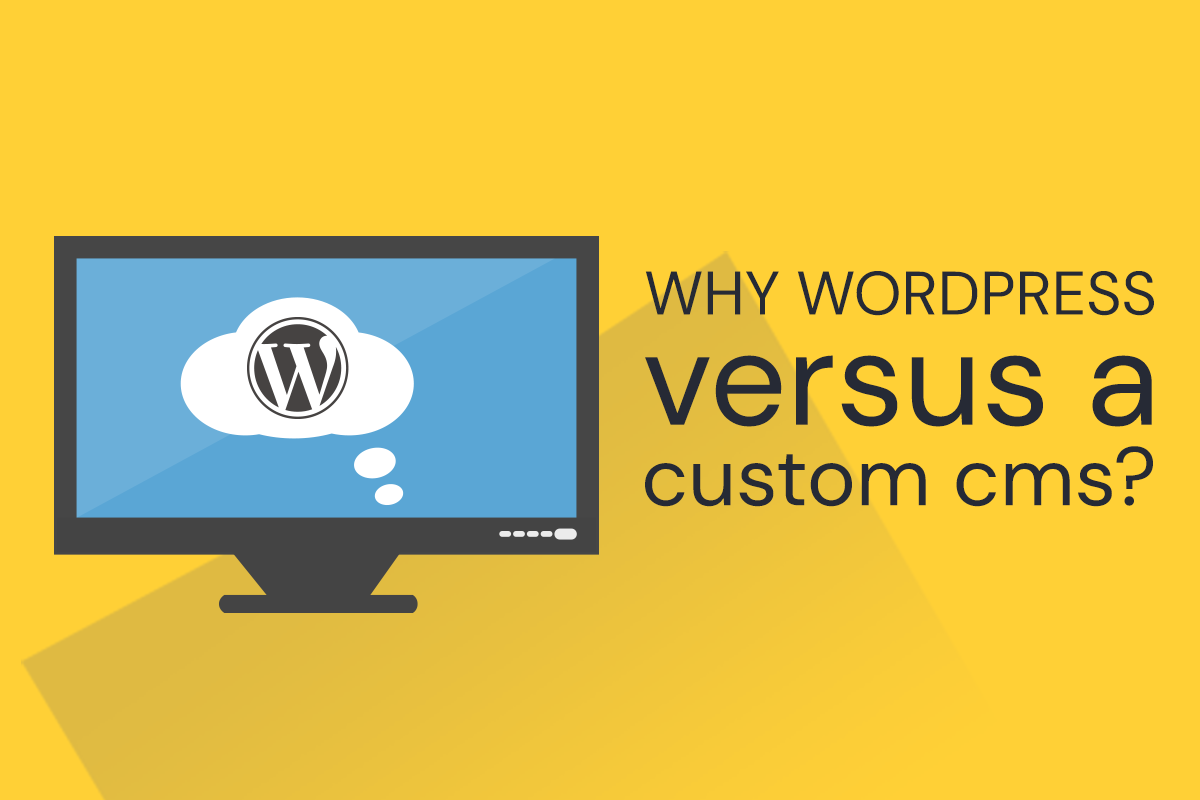If you are in charge of managing the website build for your company, you may have been approached by companies telling you that you need a custom CMS. For the uninitiated, CMS stands for “Content Management System”—in other words, it’s the back end that allows a less technically inclined person to manage a website. Most websites today have a front end (the part of the website that a visitor sees) and a back end (a part of the website that is accessed by an administrator using a secure login, that allows the administrator to edit and update the front end of the website). But we digress… so, often web development companies will pitch a custom CMS. Sometimes they’re right. Often they’re not.
WordPress is an open-source, free platform originally developed for blogging that has exploded in popularity over the past few years. And because it is open-source software, developers are constantly releasing new plugins to add functionality: some free, and some for payment. As a result, WordPress has become much, much more than a blog platform. With WooCommerce, WordPress can become a fully functional, highly customizable e-commerce website. With BuddyPress, it can become a custom social network, with member profiles, activity streams, user groups, and messaging. And that’s just the tip of the iceberg. If a plugin doesn’t exist with the functionality you need, it can likely be developed—for considerably less than the cost of creating a custom CMS.
Here are some situations where you almost certainly don’t need a custom CMS:
Restaurant websites. If, like most restaurants, your restaurant website needs to include photos of your food, contact information, and current menus, a platform like WordPress is ideal to create your website. Need some specialized functionality, like online ordering of your food, or reservations of event space, or selling branded merchandise online? WordPress can still handle that.
Portfolio websites. Are you an artist, photographer, graphic designer, architect, design/build firm, or interior designer? There are lots of WordPress themes available with a great start for your website—or you can have a custom theme built that perfectly accommodates all your needs. What’s more, because WordPress is so widely used for websites like these, it’s likely a developer out there has created a feature that you didn’t even know you needed, like making your portfolio items easily shareable on social media or SEO-friendly.
Law firms/political websites. Again, there are lots of clean, elegant WordPress themes available that can be adapted to meet your firm’s or organization’s needs with built-in SEO capabilities. If you need a section of your website for uploading private documents or for corresponding with clients, that need can likely be created without starting from the ground up.
Retail storefront websites or websites for local businesses. If you need a website to represent your local business, you likely need what we call a “brochure website.” This generally includes a section about your company, a contact page, and maybe a few other pages describing your offerings or services. Even with a brochure website, you can still have videos or slideshows or an integrated Twitter or Instagram feed. And WordPress can accommodate all those needs.
So, in what situation might you need a custom CMS? We’re going to go out on a limb and say: almost never. Even if your website needs to do something you’ve never seen on the Internet before, we’ll still suggest starting with one of the big open-source CMS solutions out there—whether it’s Drupal, Magento, Joomla!, or Ruby on Rails. The fact is that a custom CMS built by one developer or a small team of developers can’t compete with one of these aforementioned platforms that have thousands of developers working on them. Even the most skilled team can’t anticipate every need you might encounter down the line, and your custom CMS will come up short. Balancing flexibility for the end user and how much coding knowledge that end user will have to have is an exceedingly difficult task—one that’s a challenge even for developers of the most popular CMSes out there. It’s unlikely that a single development team will get it right for you.
What’s more, your custom CMS will be tied to the company who created it for you. If you become unhappy with your development team, it will be very difficult (if not impossible) to find a new partner to take over your website and maintain it or update it. Any new development team will likely want to rebuild it in a new platform, and who can blame them?
Want to discuss your website needs, and whether it could be handled by WordPress or if you need a more customized solution? Leave us a comment or contact us!






